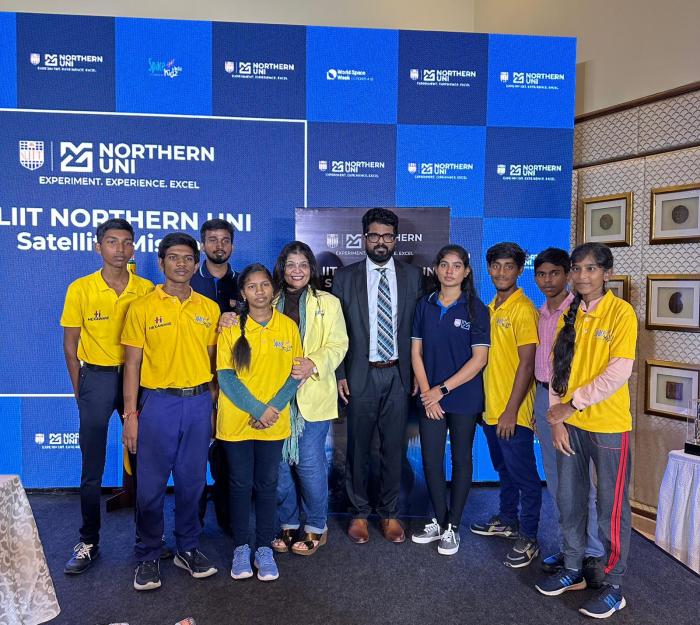Sri Lankan IT institute to launch student-led satellite manufacturing project
Press Release: MoU signed in Chennai in the presence of Dr. Prabulla Kumar Jain, Director of Inspace Ahmedabad, Indi Padmanathan, President of SLIT Northern Uni, Mrs. Kesson, Founder and CEO of SpaceKids India, Alma Okpaleb, Executive Director of World Space Week Association and Educational Psychologist Signed Saranya Jayakumar Signed.
It marks the region's first foray into space technology. Through this ambitious project, SLITT Northern Uni plans to bring together students from public schools in Jaffna and India to design, build and launch a satellite. The satellite will carry state-of-the-art instruments to study the space environment and demonstrate advanced communications technologies.
This joint initiative of SLITT Northern Uni is expected to showcase the innovative technological capabilities of students from both countries while providing valuable data for scientific research. This program provides students with practical experience of satellite technology and the opportunity to participate in groundbreaking research that has the potential to provide innovative solutions to global challenges.
This initiative will equip students with essential skills in satellite development, data analysis and communication technologies to prepare them for future careers in the fields of science, technology, engineering and mathematics. Through this, students from both the countries will showcase their talents in advancing space exploration and introducing technological innovations that will benefit the society.
Speaking on the occasion, Indi Padmanathan, President of SLITT Northern Uni, said: “This initiative will give a great impetus to both Sri Lanka and India in developing a culture of scientific collaboration and mutual innovation. Our students, the future generation of both the countries, will be well-versed with the intricacies of satellite technology.
It excites me to think that this cross-border collaboration between students from different backgrounds, cultures and educational systems will develop their skills. Not only will they develop advanced skills in science and engineering, but they will also learn about teamwork and self-motivation. With this project, we are not building a satellite, we are building a future in which innovation has no limits,” he said.
Mrs. Kasan, Founder and CEO of SpaceKids India said, “This project will play an important role in bringing the people of both India and Sri Lanka together in education, technology and space exploration. By involving students from both countries in this programme, we are sowing the seeds for future generations to jointly tackle global challenges in the present.
These young minds become symbols of scientific progress and their participation in the launch of this satellite begins. Space technology is an incredibly powerful field. And through this programme, we aim to make students look beyond geographical boundaries and create true innovators and leaders in space science,” he said.
About Northern University: The program is structured into two main phases. In the first phase, 50 school students from Sri Lanka, 10 school students from India and 50 college students will be trained in space science and technology. In the first phase, participants will be given a clear understanding of satellite development and basic understanding of space missions. It provides a rich educational experience that combines theoretical knowledge with practical insights.
In the second phase, 30 college students from Sri Lanka will be trained directly in the manufacturing, integration and launch of the satellite. This joint venture will enable them to work with Indian experts and their team and gain experience in satellite manufacturing. Also, 15 college students and 50 school students from Sri Lanka will be sent to India to witness the launch of this satellite. It said this will provide them with a powerful learning opportunity and inspire future generations in space science and technology.


Comments are closed.